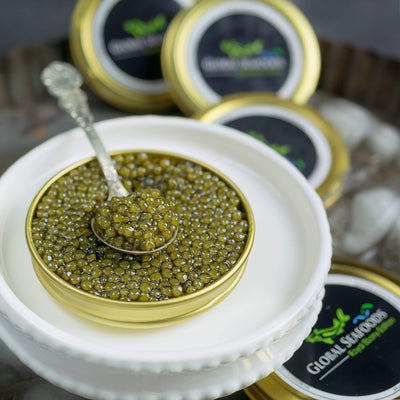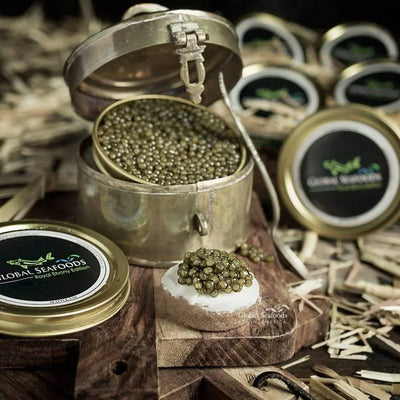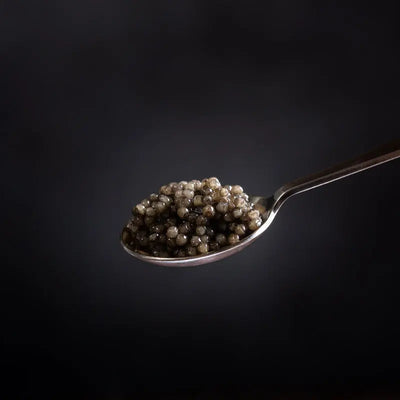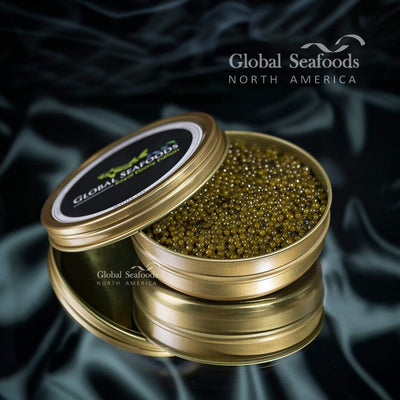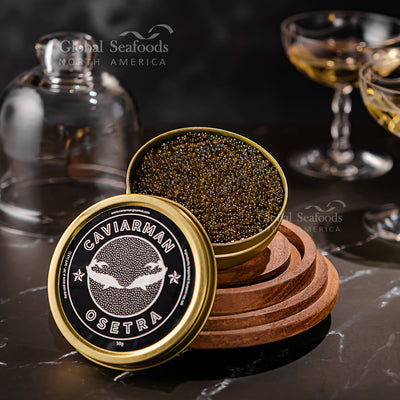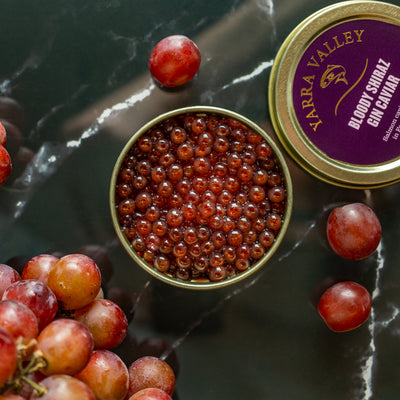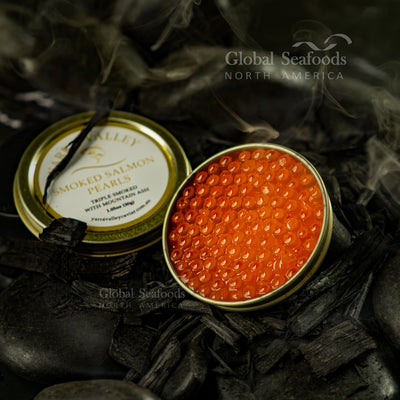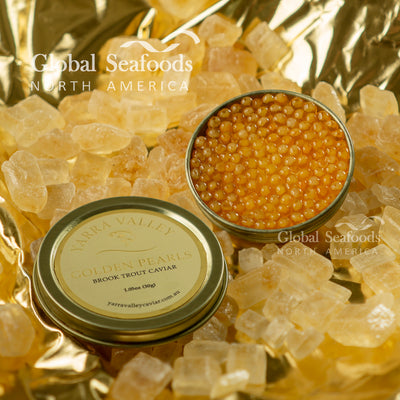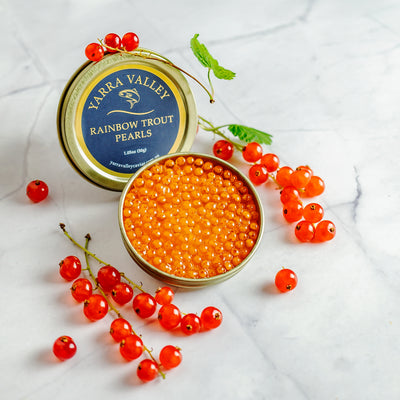+Shop Now
+Categories
- Abalone
- Ahi Tuna
- Alaskan King Crab Legs
- Alaskan Pollock
- Alaskan Sockeye Salmon
- Albacore Tuna
- Anchovy
- Anxiety Relief
- appetizer
- Atlantic Salmon
- Beluga Caviar
- Best Sushi
- black caviar
- black cod
- Blue crabs
- Bluefin Tuna
- Brain Function
- Branzino
- breakfast
- Calamari
- caviar
- Caviar Recipes
- Chef Knives
- Chilean Sea Bass
- Clams
- cocktail caviar
- Cod
- Coho Salmon Caviar
- collagen
- Cooking Methods
- crab
- Crab Balls
- Crab Cakes
- Crab claws
- crab meat
- Crab Recipes
- culinary tips
- decline-sturgeon
- Diver Scallops
- Dover Sole
- Dry Aged Fish
- Dungeness Crab
- Dungeness crab clusters
- Dungeness Crab Legs
- Exotic Shellfish Sampler
- Fish and Seafood
- fish oil
- Fish Sauce
- flat fish
- FLOUNDER FISH
- Focus
- Fresh Seafood Delivery
- Fresh Wild Alaskan Salmon
- Geoduck
- Gooseneck Barnacles
- Gourmet Seafood Platter
- haddock
- halibut
- Halibut Recipes
- hamachi
- Hamachi Recipe
- health
- healthy eating
- Ikura
- Japanese restaurants
- Jonah crab
- Jumbo Sea Scallops
- Kaluga Caviar
- kelp
- king crab
- King Crab Legs
- King Salmon
- kitchen
- Lingcod
- Live King Crab
- Live Lobsters for Sale
- Live Scallops
- Live seafood
- lobster
- Lobster Tail
- luxury food
- mahi mahi
- Marine Collagen
- Mollusk
- Monkfish
- Mussels
- New
- Nutrition
- octopus
- Opah
- Ora King Salmon
- Osetra Caviar
- Ossetra Sturgeon Caviar
- oysters
- Pacific Cod
- Pacific Hake
- Pacific Halibut
- Pacific Ocean
- Pacific Whiting
- Pacific Whiting Recipe
- Paddlefish Caviar
- Petite Oysters
- Petrale Sole
- Poke Tuna
- Pollock
- Pregnancy
- Premium Caviar Selection
- Recipe
- red caviar
- Red Crab
- rock fish
- Rockfish
- Rockfish Recipes
- sablefish
- Sablefish (Black Cod) Recipes
- salmon
- Salmon Caviar
- Salmon lox
- Salmon Poke
- Salmon Recipes
- salmon roe
- Sardines
- Sashimi
- Sashimi-Grade Tuna
- Scallop
- scallops
- Scallops Recipe
- Sea Urchi Recipe
- sea urchin
- Sea Urchin Sushi
- sea weed
- Seafood
- Seafood Dishes
- Seafood Market
- Seafood Recipe
- Seafood Restaurants
- sevruga caviar
- shellfish
- Shrimps & Prawns
- Silver Salmon
- Smoked
- Smoked Salmon
- Smoked Tuna
- Snail Caviar
- Snapper Recipe
- snow crab
- Sole & Flounder Recipes
- Squid
- Steelhead
- Sturgeon Caviar
- Sustainable Seafood Choices
- Swordfish
- Tilapia
- Tilapia Fish
- Tobiko
- Trout
- tuna
- Tuna Recipe
- weathervane scallops
- white fish
- White Sturgeon
- White Sturgeon Caviar
- Whiting Fish
- Wild Caught Shrimp
- Yellowfin Tuna
- Yellowtail snapper
Exploring the Delicacy of Russian Caviar: A Luxurious Culinary Experience
January 03, 2025

Russian Caviar: A Luxurious Culinary Experience
Russian caviar is synonymous with elegance and opulence, offering a taste of tradition and luxury to connoisseurs worldwide. Whether it’s the buttery richness of Beluga or the nutty undertones of Ossetra, Russian caviar is celebrated for its exquisite flavor, texture, and cultural significance.
In this comprehensive guide, we’ll dive into the history, varieties, and ways to enjoy Russian caviar.
The Rich History of Russian Caviar
For centuries, Russian caviar has been the epitome of luxury. Originating from sturgeon species in the Caspian and Black Seas, caviar has been a symbol of wealth and refinement. Historically, it graced the tables of Russian tsars and European aristocracy, cementing its place in culinary history.
Famous Varieties of Russian Caviar
- Beluga Caviar: The most prized caviar with large, delicate pearls and a creamy, buttery flavor.
- Ossetra Caviar: Known for its medium-sized pearls and a nutty, rich taste.
- Sevruga Caviar: Offers smaller, firmer pearls with a bold and briny flavor.
Each variety has its unique characteristics, making Russian caviar a versatile choice for gourmets.
What Makes Russian Caviar Unique?
1. Superior Quality
Russian sturgeon are bred and harvested under strict conditions to ensure unparalleled quality.
2. Rich Flavor Profiles
From creamy Beluga to earthy Sevruga, each type caters to different palates.
3. Nutritional Benefits
Caviar is not just luxurious; it’s also nutritious, rich in Omega-3 fatty acids, vitamins, and minerals that support overall health.
Quote: “Caviar is a treasure of the sea, embodying both luxury and health benefits,” says renowned chef Eric Ripert.
How to Enjoy Russian Caviar
1. Serve it Cold
Always serve caviar chilled, preferably on a bed of crushed ice, to maintain its delicate flavor and texture.
2. Use the Right Utensils
Avoid metal spoons, as they can alter the taste. Opt for mother-of-pearl, glass, or wooden utensils.
3. Pair it Perfectly
Caviar pairs wonderfully with:
- Drinks: Champagne, vodka, or dry white wine.
- Accompaniments: Blinis, crème fraîche, finely chopped onions, or boiled eggs.
4. Keep It Simple
Let the caviar shine by avoiding overpowering flavors.
Best Russian Caviar to Buy Online
Global Seafoods offers a curated selection of premium Russian caviar:
- Beluga Caviar: The ultimate in luxury.
- Kaluga Caviar: Sustainably sourced with a buttery flavor.
- Ossetra Sturgeon Caviar: Rich and nutty with a velvety texture.
Top Tips for Storing and Serving Caviar
Storage:
- Keep caviar in the coldest part of your refrigerator (28–32°F).
- Consume within 48 hours after opening.
Serving Tips:
- Use small portions to savor the flavor.
- Avoid garnishing directly on the caviar; serve accompaniments separately.
FAQs About Russian Caviar
Q: What is the difference between Russian caviar and other caviars?
A: Russian caviar, especially from Beluga, Ossetra, and Sevruga sturgeon, is renowned for its superior quality, larger pearls, and unique flavor profiles.
Q: Can I freeze Russian caviar?
A: Freezing caviar is not recommended as it can compromise the texture and flavor.
Q: What’s the best drink to pair with Russian caviar?
A: Traditional pairings include chilled vodka or Champagne.
Elevate Your Caviar Experience with Global Seafoods
Indulge in the finest Russian caviar by shopping with Global Seafoods. Our premium collection includes:
Discover unparalleled taste and quality, delivered straight to your door.
Discover More on YouTube
For more tips on serving and enjoying Russian caviar, visit our Global Seafoods YouTube Channel.
Conclusion
Russian caviar represents a fusion of tradition, luxury, and exceptional taste. Whether you’re a seasoned connoisseur or a first-time taster, the experience of savoring authentic Russian caviar is unparalleled.
From elegant Beluga to bold Sevruga, each bite of caviar offers a moment of indulgence. Shop Global Seafoods today and embark on a luxurious culinary journey.
Shop Now:
Experience the finest Russian caviar today!
Related Products
Share:
Also in News

How to Make Sea Bream Sushi With Dry-Aged Tuna & Crab Roll — Step-by-Step With Chef Joshua
December 07, 2025
A complete guide to making Sea Bream sushi at home, including filleting, curing, slicing, and building a Dry-Aged Tuna & Crab sushi roll. Chef Joshua shares professional tips for restaurant-quality results.

Cooked Crab for Game Night: Everything You Need for a Perfect Seafood Party
June 27, 2025
Take your game night to the next level with a Cooked crab party. Learn the best recipes, cooking tips, and hosting hacks for a memorable seafood feast.

Steam Crab for Date Night: A Romantic Guide to the Perfect Seafood Feast
June 27, 2025
Make your next date night unforgettable with a romantic Steam crab experience. This guide covers everything you need to know, from ambiance to the best crab varieties.
+Shop Now
+Categories
- Abalone
- Ahi Tuna
- Alaskan King Crab Legs
- Alaskan Pollock
- Alaskan Sockeye Salmon
- Albacore Tuna
- Anchovy
- Anxiety Relief
- appetizer
- Atlantic Salmon
- Beluga Caviar
- Best Sushi
- black caviar
- black cod
- Blue crabs
- Bluefin Tuna
- Brain Function
- Branzino
- breakfast
- Calamari
- caviar
- Caviar Recipes
- Chef Knives
- Chilean Sea Bass
- Clams
- cocktail caviar
- Cod
- Coho Salmon Caviar
- collagen
- Cooking Methods
- crab
- Crab Balls
- Crab Cakes
- Crab claws
- crab meat
- Crab Recipes
- culinary tips
- decline-sturgeon
- Diver Scallops
- Dover Sole
- Dry Aged Fish
- Dungeness Crab
- Dungeness crab clusters
- Dungeness Crab Legs
- Exotic Shellfish Sampler
- Fish and Seafood
- fish oil
- Fish Sauce
- flat fish
- FLOUNDER FISH
- Focus
- Fresh Seafood Delivery
- Fresh Wild Alaskan Salmon
- Geoduck
- Gooseneck Barnacles
- Gourmet Seafood Platter
- haddock
- halibut
- Halibut Recipes
- hamachi
- Hamachi Recipe
- health
- healthy eating
- Ikura
- Japanese restaurants
- Jonah crab
- Jumbo Sea Scallops
- Kaluga Caviar
- kelp
- king crab
- King Crab Legs
- King Salmon
- kitchen
- Lingcod
- Live King Crab
- Live Lobsters for Sale
- Live Scallops
- Live seafood
- lobster
- Lobster Tail
- luxury food
- mahi mahi
- Marine Collagen
- Mollusk
- Monkfish
- Mussels
- New
- Nutrition
- octopus
- Opah
- Ora King Salmon
- Osetra Caviar
- Ossetra Sturgeon Caviar
- oysters
- Pacific Cod
- Pacific Hake
- Pacific Halibut
- Pacific Ocean
- Pacific Whiting
- Pacific Whiting Recipe
- Paddlefish Caviar
- Petite Oysters
- Petrale Sole
- Poke Tuna
- Pollock
- Pregnancy
- Premium Caviar Selection
- Recipe
- red caviar
- Red Crab
- rock fish
- Rockfish
- Rockfish Recipes
- sablefish
- Sablefish (Black Cod) Recipes
- salmon
- Salmon Caviar
- Salmon lox
- Salmon Poke
- Salmon Recipes
- salmon roe
- Sardines
- Sashimi
- Sashimi-Grade Tuna
- Scallop
- scallops
- Scallops Recipe
- Sea Urchi Recipe
- sea urchin
- Sea Urchin Sushi
- sea weed
- Seafood
- Seafood Dishes
- Seafood Market
- Seafood Recipe
- Seafood Restaurants
- sevruga caviar
- shellfish
- Shrimps & Prawns
- Silver Salmon
- Smoked
- Smoked Salmon
- Smoked Tuna
- Snail Caviar
- Snapper Recipe
- snow crab
- Sole & Flounder Recipes
- Squid
- Steelhead
- Sturgeon Caviar
- Sustainable Seafood Choices
- Swordfish
- Tilapia
- Tilapia Fish
- Tobiko
- Trout
- tuna
- Tuna Recipe
- weathervane scallops
- white fish
- White Sturgeon
- White Sturgeon Caviar
- Whiting Fish
- Wild Caught Shrimp
- Yellowfin Tuna
- Yellowtail snapper
Shop Now
Main
News & Updates
Sign up to get the latest on sales, new releases and more…
© 2026 Global Seafoods North America.

